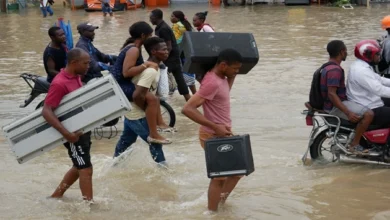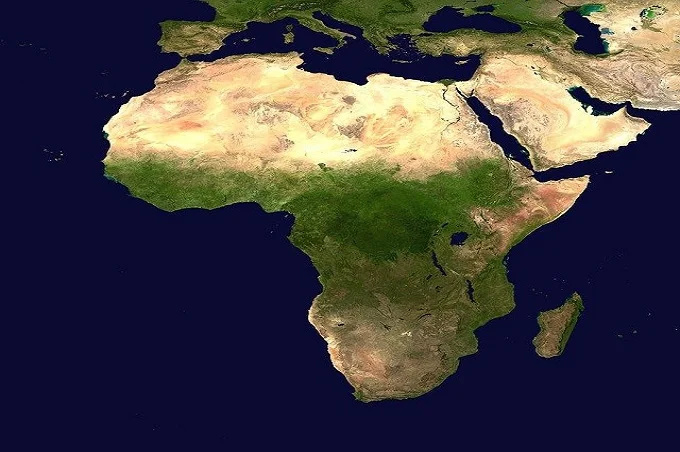English speaking Cameroon: the different faces of a crisis

The English-speaking area of Cameroon has been the scene of a deep political crisis for over a year.
One of the main cities in the region, Bamenda, is regularly the scene of violence between law enforcement and separatist militants, whose most radical fringe claims the “State of Ambazonia”.
Between the concern of the bishops, the impact of the curfew on the life of the city, the exile of some Anglophones and the lively debate over the idea of ”Ambazonia”,
According to RFI, that went to Bamenda and its region, to meet the different aspects of a crisis that lasts.
A city under curfew
The violence of recent days in Bamenda and its region led to the introduction of a curfew on the city by the governor of the North-West.
Thus between 8pm and 6am, the city is in complete stop. A situation that affects the attractiveness and economy of Bamenda, the fourth largest city in Cameroon.
Student in Bamenda for three years, today has a hard time recognizing his city because of the measure of the curfew decided by the governor.
“The city of Bamenda is dying because we have a dead city, business does not work, the city is dead. Cars do not pass, and sometimes there is dead city two or three times a week. And when it’s like that, students who have to go to school and kids have a problem.”
This big fan of nocturnal ambiances can only regret the restrictions of schedules imposed curfew barely 20 hours: “From 20 hours, before we were getting ready to go to nightclub, go out, drink with the comrades one or two beers. Now, it’s the opposite. It’s like we’re at the boarding school.”
For Dr. Ningouoyen, promoter of a higher education institution, beyond the only city of Bamenda, it is all English speaking Cameroon that is dying: “Yes, it is the death of the English-speaking part of the country nothing else happens. It does not help anyone. This is to the advantage of no one and everyone suffers. Many real estate developers have lost customers here in Bamenda. The houses are empty because foreigners and francophones are leaving, even some anglophones who had business here went elsewhere. We live in a dead city.”
The tension, far from falling back into the region, could unfortunately lead to the indefinite continuation of this curfew.
The concern of the Catholic Church
The Catholic Church in Bamenda is concerned about the crisis situation in the two English-speaking regions. While the tension continues and the various calls for dialogue are so far stalled, the bishops invite President Paul Biya to come to these regions to see for himself the situation on the ground and open a dialogue with all parties, including the most radicalized.
The Catholic bishops of the English-speaking regions of Cameroon continue to sound the alarm bells. After having expressed criticism of the police in the past, the church is seeing a hardening of the crisis.
“We are worried” , insists Bishop Michael Miabesue Bibi, Auxiliary Bishop of Bamanda. ” If we look at everything that’s going on… Things are really difficult. It disturbs the Church”.
The Church calls for dialogue and for Bishop Bibi, this dialogue can only be done with the personal involvement of President Paul Biya.
“I think that if a leader has to dialogue, it must start with our head of state. He is our father. If you have children who are secessionist, who are terrorists, it’s always your children. We must try to remind him, with everyone, with good will. Like that, even the Church, we come and see what the problem is.”
Every Friday, the days of worship were instituted in the chapels of the two English-speaking regions with the sole intention of returning to peace.
The idea of a “state of Ambazonia” provokes debate
Western Cameroon is going through a serious political crisis characterized, among other things, by the secessionist demands of some English-speaking activists. The most radicals claim to fight on behalf of the “State of Ambazonia”.
In Bamenda, one of the epicentres of the crisis and regional capital of the North-West, the subject is almost fantasy. An ideological creation in debate, including in Bamenda.
In Bamenda, it is difficult to meet people who claim it openly, but “Ambazonia”, the name of this state dreamed by the separatists, is in everyone’s minds.
Promoter of an institution of higher education, on the question of this imaginary state and the attitude to have vis-à-vis those who defend it, invites to question not the effects, but rather the cause.
“The problem is that they should not be treated as terrorists or secessionists. Nor should they be treated as criminals. You know, from the moment you start sticking such labels on people, you have to ask yourself the right questions and ask yourself, why?”
However, as our interlocutor understands, the problem does not lie in the opposition between Anglophones and Francophones. “The anglophones who are here, the anglophones you see out there, they do not hate francophones. We are brothers and sisters. We eat the same foods, we drink the same wines, we share our joys and our sorrows. The problem, in my opinion, is our administration.”
Fidelis a seller on the sly, says that Ambazonia is irrelevant. “Since reunification, Cameroon has become one and indivisible. For all those who create Ambazonia or whatever, I think Cameroon is one. I am Cameroonian and proud to be.”
The positions remain thus divisive on this debate which is very far from being decided.
These Anglophone refugees in French-speaking areas
The situation is causing many residents to leave Bamenda and its region for neighboring towns in the French-speaking zone. This is particularly the case of Bafoussam, which hosts many of these internally displaced persons.
Just six months ago, Victor a taxi driver in the streets of Bamenda. But with the persistence of the crisis in his hometown, the father of 38 years was forced to settle with his working tool 70 kilometers away, in the first major French-speaking city in Bafoussam.
“I am taxi driver, I am in Bafoussam but my family stayed in Bamenda,” he explains. ” I am here because of the crisis that is disrupting the transport sector with the dead cities but also the curfew that the governor has instructed on the cessation of all activities from 7 pm. It affects my business a lot and that’s why I came with my taxi here.”
If his wife and three children are still in Bamenda, he says he plans to regroup the whole family to ensure his safety. “If the crisis continues, I think I will not give up my family there because there is also a lot of insecurity. I think if it works for me here, I’ll go get a house to put my family safe and everyone will stay with me.”
Like Victor, hundreds, if not thousands, have chosen Bafoussam.
Recalled that two alleged secessionists shot dead




